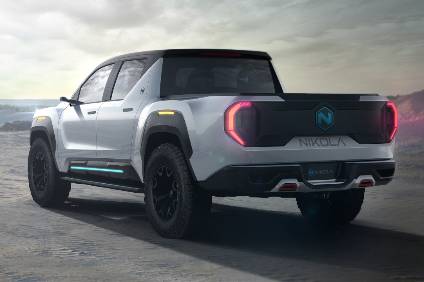Nikola – the US-based EV startup focused on hydrogen-based power sources – had been hailed by some as the ‘next Tesla’, but now finds itself fighting for its existence. Hard questions have arisen over what new technologies it has actually developed compared with those it buys in from suppliers, along with concerns about the viability of building the necessary infrastructure to support fleets of hydrogen-powered vehicles.
Problems began in September shortly after General Motors announced it would take an 11% stake in the start-up, when short-selling firm Hindenburg Research published a report that highlighted dozens of Nikola’s alleged deceptions. These ranged from accusations that Nikola was claiming it had developed certain components when it had, in fact, purchased them from suppliers, to allegations that its founder had repeatedly suggested a static demonstration vehicle was, in fact, ready to drive.
The most headline-grabbing accusation, however, was that Nikola had shown a promotional video with a truck ‘in motion’, which was actually just rolling down a hill and not travelling under its own power as the video seemed to imply. Needless to say, investors were spooked by this turn of events.
Less than two weeks after the publication of the report, founder Trevor Milton resigned from the company, in an attempt to alleviate some of the negative attention the company was receiving. Nevertheless, Bloomberg reported that, in the two weeks following the publication of the report, share values in Nikola, which had gone public in June and was briefly worth more than Ford, had fallen by more than 20%.
Talks between Nikola and General Motors were due to conclude in September ahead of a deal signing between the two. Now, however, Nikola’s new CEO Mark Russell has confirmed that those talks are still ongoing. Inevitably this has led to investors openly wondering whether GM will continue with the deal, seek to rearrange some of its terms, or even abandon it entirely if it feels the concerns raised by the Hindenburg report are too large to overlook. Unsurprisingly, the knock-on effect of this suggestion has seen Nikola’s share price sink even further.
In response, Nikola’s executives, including CEO Russell, are now drawing more attention to the company’s role as a systems integrator – assembling various components into functioning fuel-cell-powered trucks – and as a developer of a hydrogen refuelling network.
As Tesla has demonstrated with the ubiquity of its Supercharger charging stations, selling a successful electrified vehicle depends not only on the strength of the model in question, but of the recharging network built to support it. In addition, this will probably see Nikola spend less time promoting blue-sky projects such as the Badger EV pickup truck, which is likely to remain on the drawing board until the company builds stronger foundations.
See also: Nikola/GM partnership ‘may’ still proceed – reports
Nikola shares plunge as founder quits – report
General Motors to engineer and make Nikola EV truck
Nikola receives order for 2,500 battery-electric waste trucks







